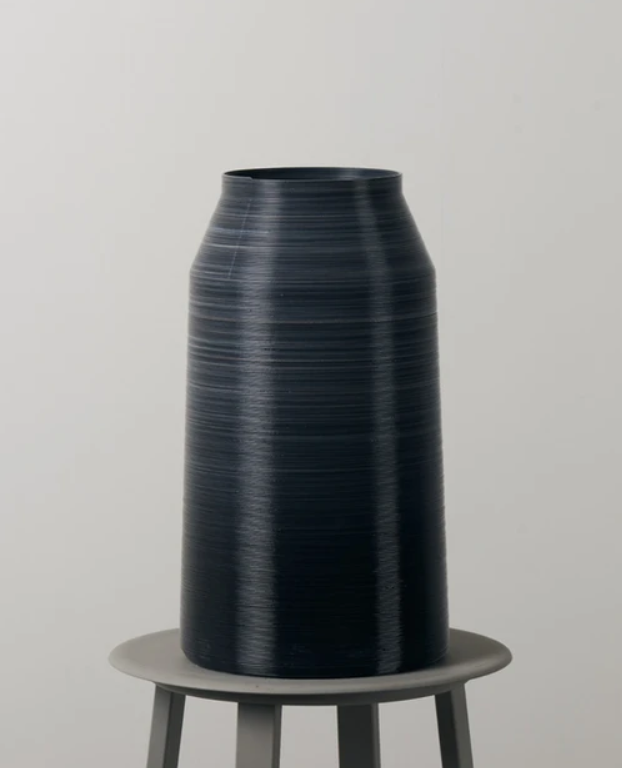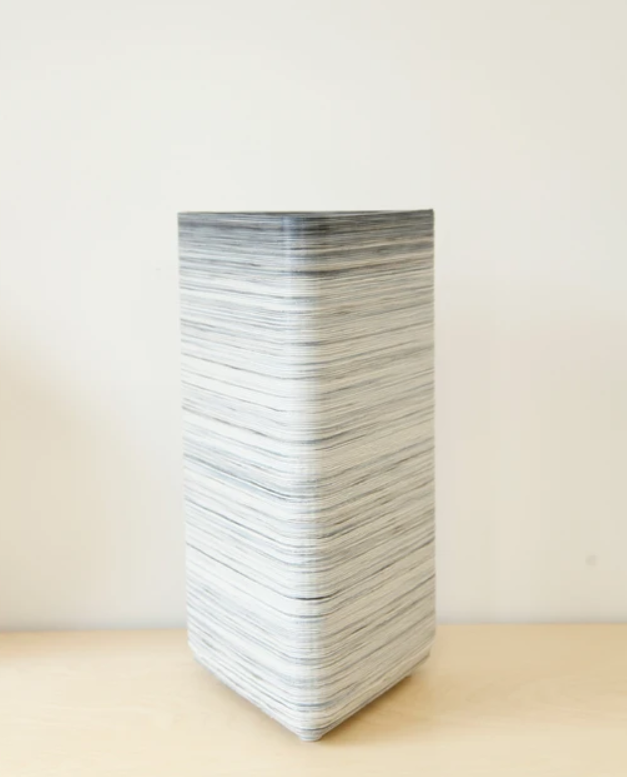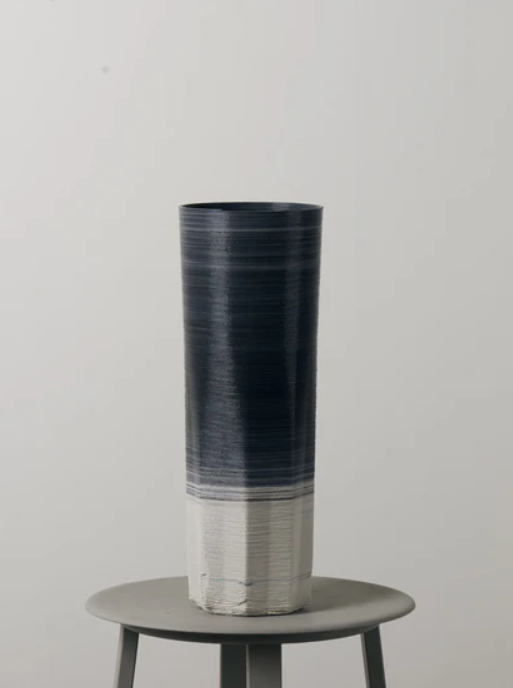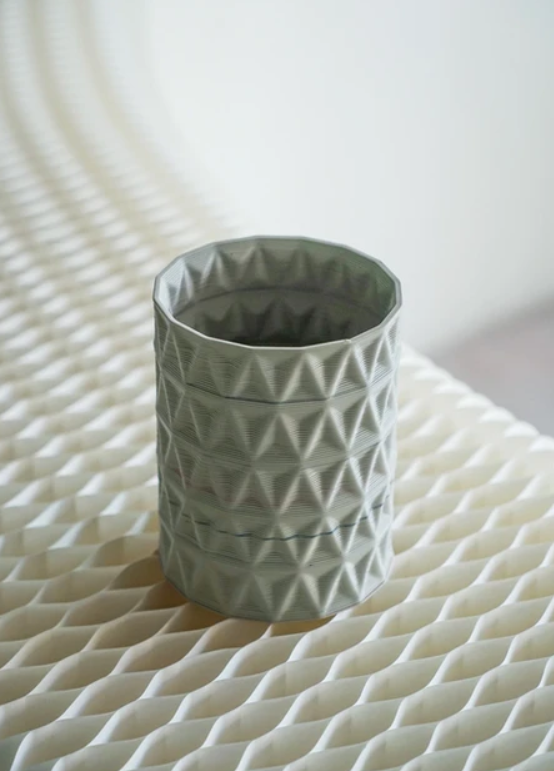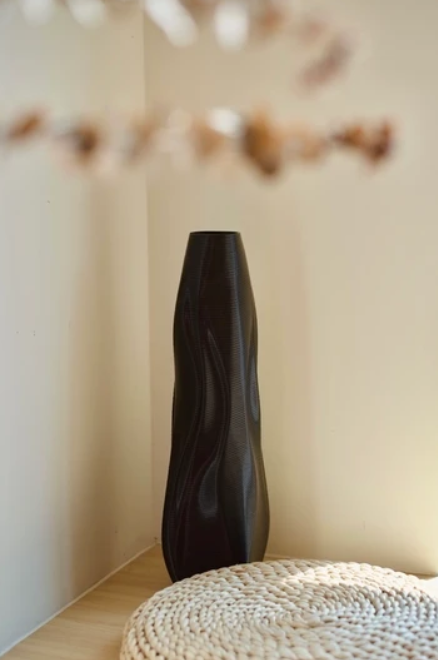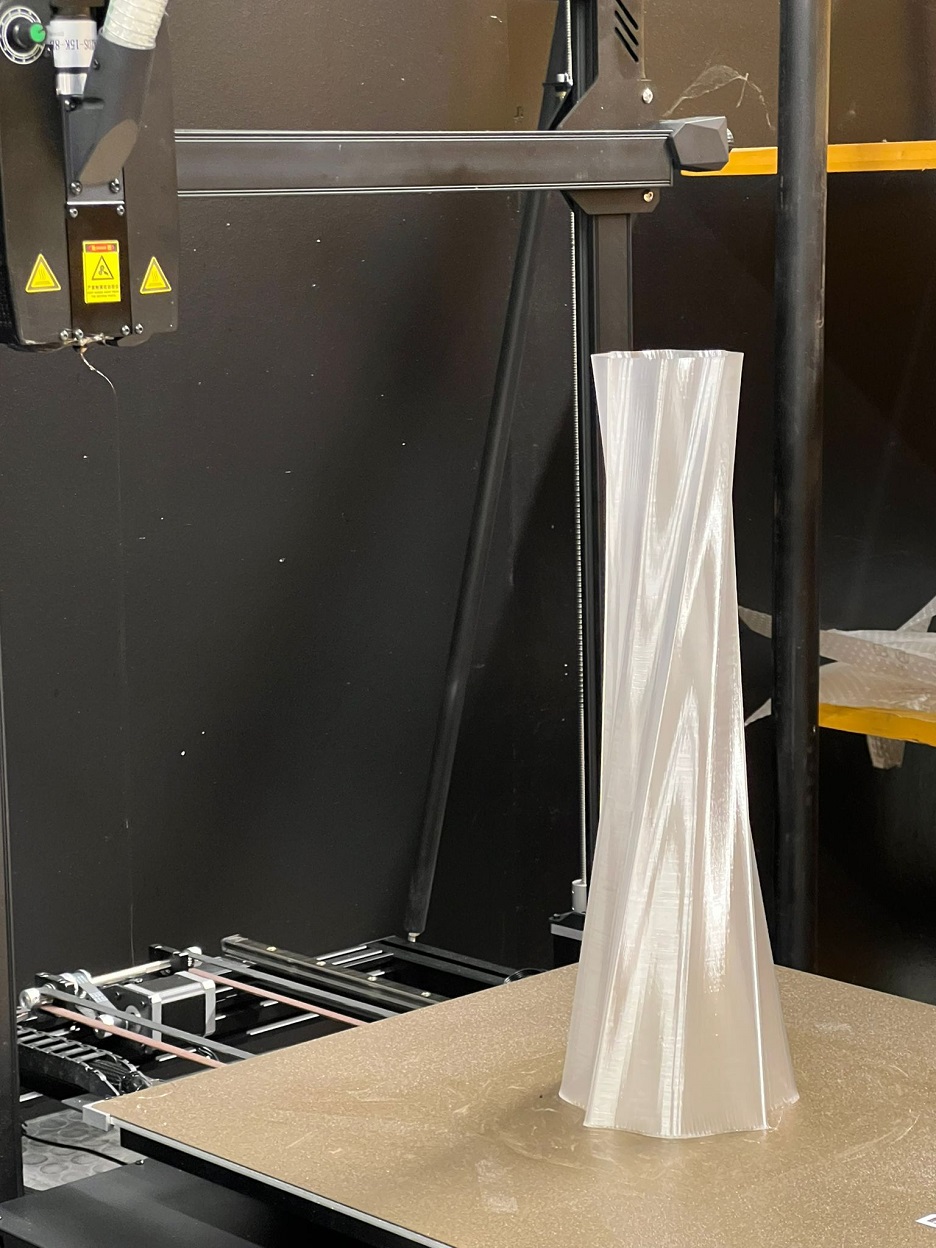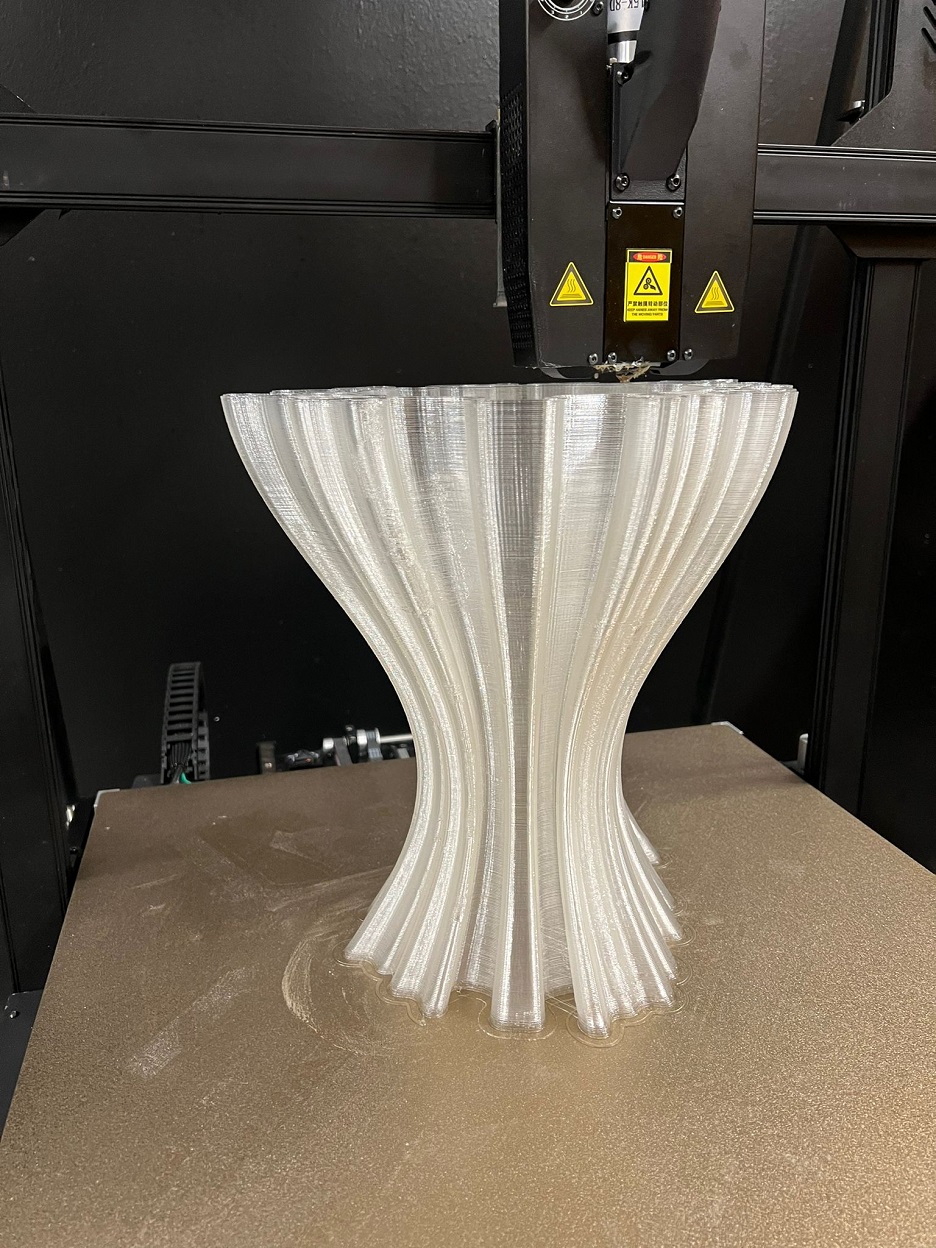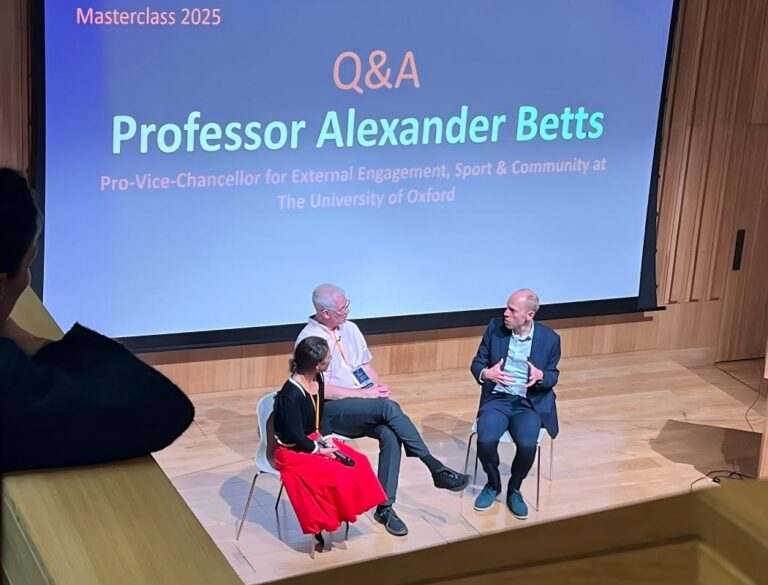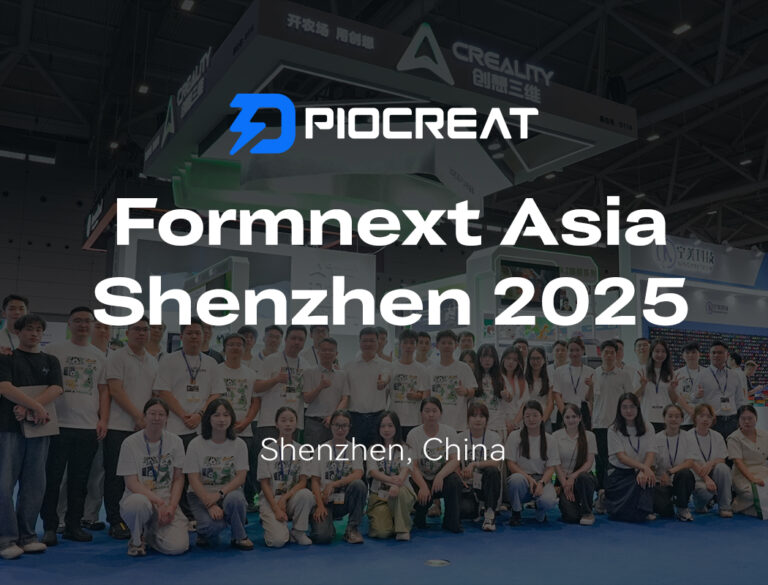Background: Innovating for a Circular Economy
TRASHAUS is an integrated circular economy innovation company dedicated to reshaping the sustainability industry through its high-tech, sustainable approach to creating customized products. Utilizing PioCreat’s G5Ultra Pellet extrusion printers, TRASHAUS transforms plastic waste into 3D printable materials and implements an on-demand manufacturing process. This unique blend of computational design, materials science, and manufacturing technology propels TRASHAUS towards its goal of achieving zero environmental impact.
Reshaping the New Form of "Garbage" and Providing Sustainable Solutions
With over five years of experience, TRASHAUS is on a mission to unlock new possibilities for “garbage” through circular innovation. The company, founded and led by CEO Vans, specializes in turning “useless” materials into valuable applications. By recycling plastic waste into usable products, TRASHAUS ensures that discarded materials find their way back into consumers’ lives in meaningful ways. This vision is supported by the flexibility of 3D technology, which allows for the transformation of recycled materials into any conceivable product, including decorative crafts.
“TRASHAUS’s value lies in the fact that the brand is not satisfied with the status quo,” says Vans. “The brand hopes to make some innovations and also has some customized demands, and we can provide corresponding solutions for them.” After more than five years of circular economy research and material innovation, TRASHAUS has made “useless” materials have the possibility of application, turning them into recycled goods that return to the consumer’s life.
A Case Study: Outdoor Planting Pots from Recycled Materials
the sense of casualness and natural aesthetics are integrated into the printing technology to design a free, casual, unprocessed and flexible planter collection
(Image Credit: TRASHAUS)
In collaboration with PioCreat 3D, TRASHAUS successfully turned recycled materials into outdoor planting pots. During the selection process, traditional materials posed challenges. Wood, while easy to cut, lacked weather resistance and rotted quickly in outdoor environments. Concrete, though durable, was heavy and cumbersome to transport.
“Using recycled plastics and breakthrough printing technology, we were able to customize large and small triangular flower pots of varying heights that are both beautiful and practical,” explains Vans. “We reused 1,000KG of recycled home appliances and electronic equipment plastics.”
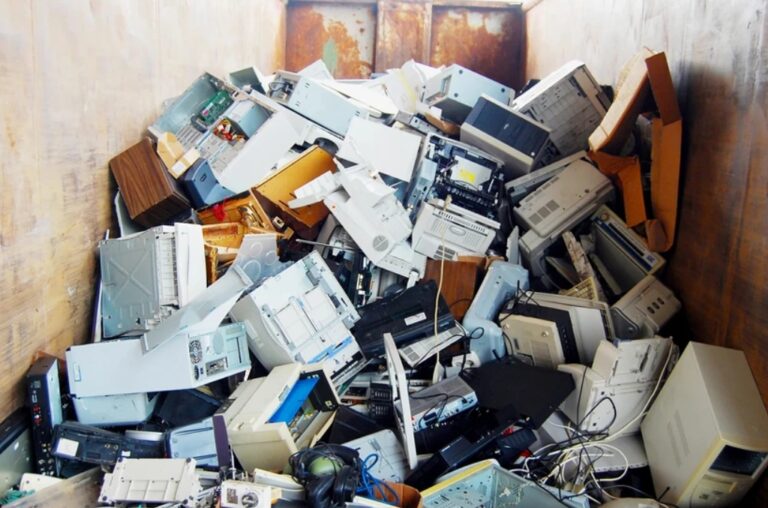
(Image Credit: TRASHAUS)
The flexibility and durability of the recycled plastic pots demonstrated the practical applications of TRASHAUS’s approach. The collaboration with PioCreat 3D showcased the advantages of using the G5Ultra Pellet 3D Printer, which utilizes cost-effective thermoplastic pellet feedstocks. This method reduced material costs by over 60% and promoted a sustainable production process.
Beyond Recycling: Sustainable Brand Collaboration
When helping brands with ESG (Environmental, Social, and Governance) projects, TRASHAUS considers multiple factors. Vans emphasizes that their work extends beyond simple recycling or art design. “The circular economy is a mature industry, and 3D printing has existed for more than ten years. What we do is not just recycling; we aim to integrate sustainability into everyone’s daily life.”
TRASHAUS’s commitment to sustainability goes beyond empty declarations. By providing practical, innovative solutions, the company helps both multinational and emerging brands connect with consumers on a deeper level. Their approach to sustainability is long-term and comprehensive, aiming to make a tangible impact on the environment.
The Role of PioCreat’s G5Ultra Pellet 3D Printer
The G5Ultra Pellet 3D Printer has been instrumental in TRASHAUS’s projects. With a printing size of 500×500×400mm, it is a desktop-sized, high-speed industrial production system. The printer utilizes thermoplastic pellet feedstocks, making it a cost-effective choice for large-scale 3D printing. By printing with plastic pellets and shredded recycled plastic instead of traditional filament, the G5Ultra cuts material costs significantly, providing both financial and environmental benefits.
Kerry Yang, marketing manager of PioCreat 3D, shares her perspective on the collaboration: “Our partnership with TRASHAUS exemplifies the potential of advanced 3D printing technology in promoting sustainability. The G5Ultra Pellet 3D Printer is designed to meet the demands of modern manufacturing, offering a flexible, cost-effective solution that aligns with the goals of circular economy innovators like TRASHAUS.”
Kerry Yang further elaborates on the significance of this project: “By leveraging our technology, TRASHAUS can create products that not only meet their aesthetic and functional requirements but also uphold their commitment to environmental sustainability. This collaboration highlights how technology and innovation can drive meaningful change in how we approach manufacturing and resource utilization.”
Conclusion: A Partnership for Sustainable Innovation
The partnership between TRASHAUS and PioCreat 3D exemplifies how innovative technology can drive sustainability. By transforming recycled materials into valuable products, TRASHAUS is setting a new standard for environmental responsibility. The use of PioCreat’s G5Ultra Pellet 3D Printer not only enhances production efficiency but also supports a circular economy, making this collaboration a model for sustainable innovation.
Through their joint efforts, TRASHAUS and PioCreat are demonstrating that sustainability is achievable with the right technology and a commitment to making a difference. This customer story highlights the potential for businesses to lead by example, turning waste into opportunity and paving the way for a greener, more sustainable future.
In summary, TRASHAUS’s innovative use of recycled materials and PioCreat’s cutting-edge 3D printing technology showcase the powerful synergy that can be achieved when sustainability and technology come together. As more companies follow their lead, the vision of a circular economy will become increasingly attainable, benefiting both the environment and society at large.
